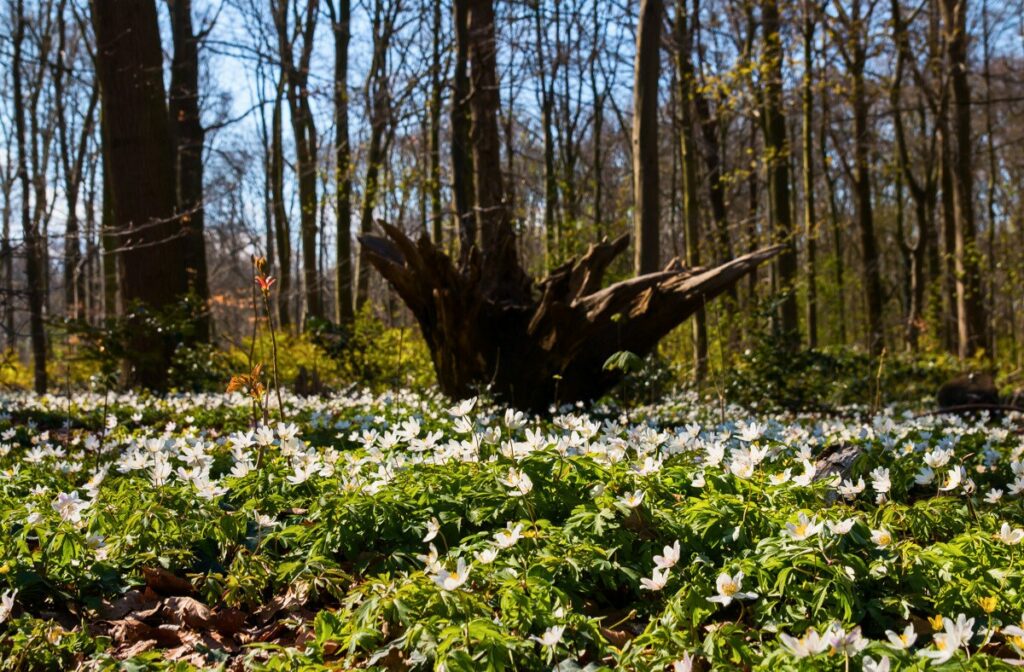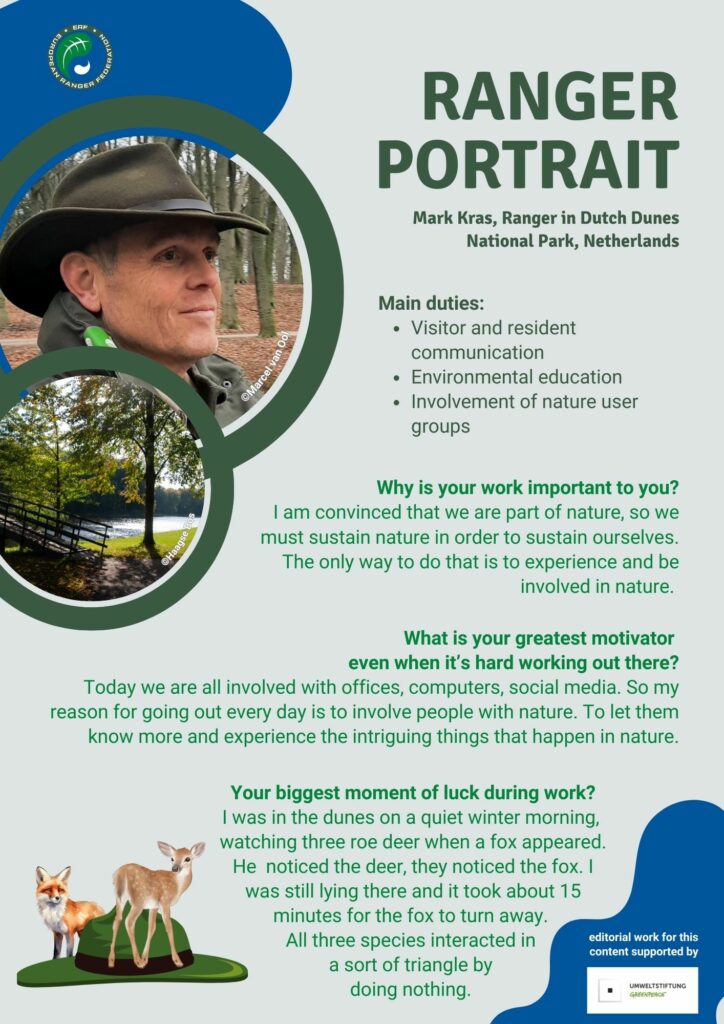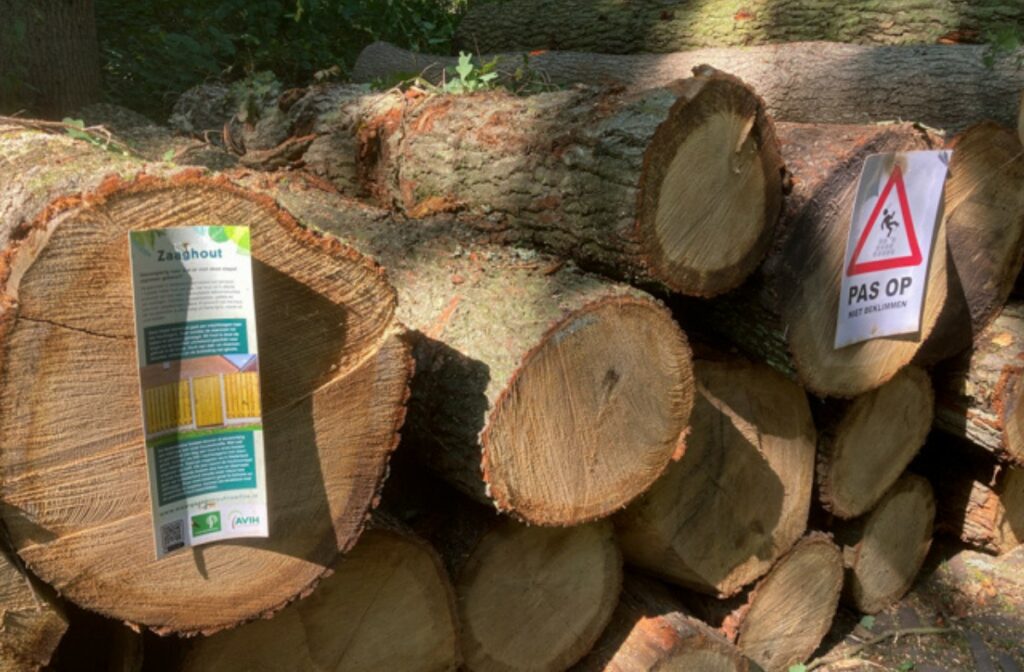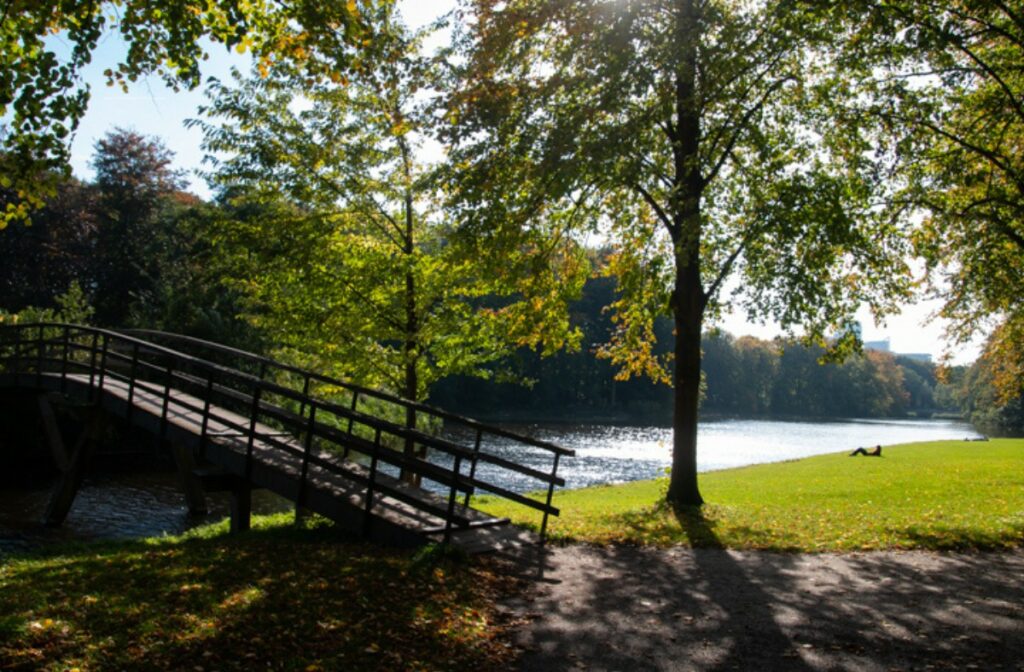In the Netherlands, rangering is a lot about interacting with people: While only 10 percent of the densely populated country of the Netherlands consists of natural areas, says Mark Kras, there’s a growing rush of visitors out of the almost 18 million inhabitants and countless tourists.
Mark is a ranger of the Staatsbosbeheer (Dutch forestry commission) in The Hague’s ‘Haagse Bos’ forest area, part of the Dutch Dunes National Park. We spoke to him about dealing with visitors, e. g. through communication work, environmental education or involving nature user groups, but also about how the ranger profession is organised in the Netherlands and the challenges it faces.

What does ranger work look like in the Netherlands?
There are four tasks for rangers within the Dutch Forestry Commission Staatsbosbeheer: there are people who are responsible for maintaining the areas, for example felling trees, maintaining paths and liaising with farmers who lease land. Then there are rangers who take care of monitoring: There are around 130 volunteers in our area who monitor various species such as squirrels, spring bulbs like snowdrops, blue bells and wood anemones, pine martens and bats, allowing us to see how our work to protect these species is progressing. We also have rangers who essentially do surveillance. They check that people are following the rules and have some policing role, such as fining people if dogs are not on leads or people stray off the path. And finally, there is my role, which is to communicate, educate and involve people.
In which ways do you mainly interact with people?
As a ranger I am a host for Dutch nature, to welcome people to get in touch or ‘reconnect’ with nature. Part of my work is answering enquiries, because many questions, comments on our work and criticism come via digital channels such as email or social media. So if you have a question about the Haagse Bos, you can find me on all kinds of channels and write to me. We also offer guided tours for adults and educational tours for children, which are conducted either by us rangers or by our volunteer tour guides, who are trained by us.
“We have an advisory board made up of nature users to ask them what they think before taking major action. This helps us to make better decisions.”
As part of our work, we also have a ‘user group’, an advisory board made up of nature users: sportspeople, birdwatchers and nature lovers as well as people living next door. In total, we have around 15 functions in this group. Whenever we change our nature conservation policy or plan major maintenance work, we ask them what they think we should consider before taking action. Their advice is very important to us, because it helps us to think about more issues than we can on our own and thus make better decisions. And we can also refer to the fact that we don’t make them alone, but together with the people who use the forest.

Do you have an example on how you cooperate with this advisory council?
Many entrepreneurs want to use the Haagse Bos for their business. One of them wanted to offer climbing on individual trees for a customer experience 20 metres above the ground. So I asked the advisory board what they thought. The dog owners feared that groups of people gathering around the trees would disturb other visitors to the area and also irritate the dogs. The nature and bird lovers were concerned that the breeding season would be disturbed, and the other groups had all sorts of questions too. I wrote them all down and discussed them with the climbing company. We put all the answers in a contract to start this business as a pilot project for three months and then see if everything goes well so that the contract can be extended.
What are the biggest challenges you have to deal with?
The most challenging tasks result from the number of people coming to the nature areas. It’s a growing group because, especially since the pandemic, people are starting to appreciate how important nature is to them. So we need to deal with that and get the right people to the right place so that they can experience the benefits for their wellbeing on the one hand, and we on the other hand can preserve the area for the species that live there. This is a huge challenge, especially given the lack of funding for management of nature areas in the Netherlands.

Are there special techniques you use to make people understand the needs of nature?
The guides offer an excursion into the history of Haagse Bos. But people will also learn how we maintain the nature reserve with all the people coming here, how we deal with waste and visitor management, we tell them why we cut down trees, which trees we plant – so we tell them all about how we do our work. But we also tell stories about the Ice Age, the Middle Ages and the people who lived here during the Dutch Golden Age. So our guided tours are a mixture of nature knowledge, nice historical facts and the care of the forest. It’s a way of getting people excited about the forest they visit every day.
“The forest is our touchstone for any new development. The impact must therefore not be measured by what people want, but by what the forest can host without losing its ecological function.”
We also ask our advisory board for a vision of how the Haagse Bos should develop. We had a landscape architect who facilitated these meetings with the advisory board and other people who care a lot about the forest, as well as some specialists in recreation, nature and public space. The result was a brochure summarising the parameters and considerations for the future of Haagse Bos. An important conclusion was that the forest is our touchstone for any new development. The impact must therefore not be measured by what people want, but by what the forest can host without losing its ecological function.
How are Rangers recognised in the Netherlands?
People see us as knowledgeable people who know what their business is about. In general, they respect us and do what we ask them to do. However, we also notice that people find it very difficult when it comes to policing and can even become aggressive. That’s why rangers who do surveillance or police work go out in pairs, especially at night or in the evening, and only intervene when it’s safe for them to do so. To deal with the special group of homeless people who often spend the night in the woods near The Hague, our rangers who do the surveillance have equipment that I don’t have with me, for example pepper spray, handcuffs, body cameras, batons and radio that put them in direct contact with the policy. Because it’s very difficult to assess the safety of the situation.

Is there a regulated training program? And who employs rangers in the Netherlands?
Ranger training in the Netherlands covers all four aspects of our work over a period of three to four years. During this time, you choose which role suits you best. It is very much on-the-job training with continuous training through all kinds of courses and special de-escalation and conflict management courses for the ‘police rangers’, which take place for one month every year. The largest employer in nature management is the Staatsbosbeheer, which works for the state and looks after half of all nature reserves and employs rangers in all provinces.
“If we had more rangers, we could share knowledge better. Now we lack time and money, so it is very difficult to utilise knowledge from abroad and participate in more European projects.”
There are also associations in every province that look after the conservation and maintenance of nature. And there are private owners of large estates who can also employ rangers. Finally, there is the large member-funded organisation Natuurmonumenten, which looks after a quarter of all nature reserves in the Netherlands. I think that this mix of organisations and their own methods is a good way forward for nature conservation in the Netherlands.
Are there nevertheless wishes you have for the ranger profession in the Netherlands?
I wish we had more rangers to handle all the work, because the number of people visiting compared to only 10 percent of the total area of the country covered by nature reserves makes nature very fragile and means very small habitats for species. A great deal of effort is therefore needed to keep them alive and let all species prosper. And if we had more people, we could share knowledge better. Now we lack time and money, so it is very difficult to utilise knowledge from abroad and participate in more European projects. In addition, there is no association for all rangers in the Netherlands that could organise this European or worldwide involvement.

